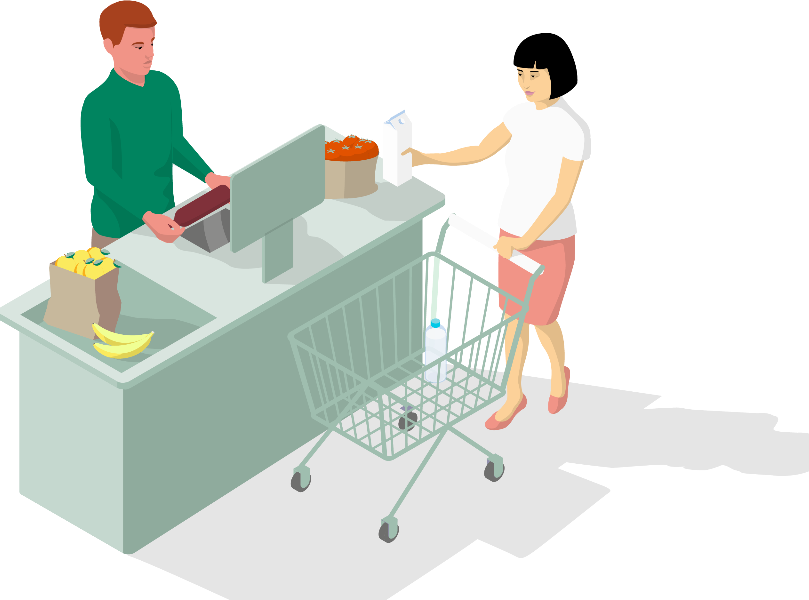
Customer Lifestyle Report
AXA UK partnered with Consumer Intelligence and spoke to 2,000 people across all walks of life in the UK. We wanted to find out what it looks and feels like to live in these uncertain times. The message is loud and clear. The increased cost of living is having a significant impact on people’s lives, with almost four in five people (78%) reducing their overall spend in the last three months.

Consumers are being forced to make tough choices
When times are tough, people are forced to make changes and often find themselves taking more calculated short-term risks when it comes to their finances. With the increased cost of living taking hold, consumers are cutting back across the board, but are especially focussed on their highest outgoings.
So how is that impacting how people are thinking about their insurance? Our survey shows that two in five people have already reduced their spending on insurance due to rising costs. Many also say that they will make further reductions within the next 3 months.
At AXA we want our customers to have the confidence to progress their lives, knowing they have the right level of protection. We recognise that people want choice and flexibility when it comes to insurance.Insurance is there to reduce that risk and provide an essential safety net for people, to protect them should something unexpected happen. By cutting back or reducing their cover, people may find that they have no (or inadequate) cover when they need it the most.
So how is that impacting how people are thinking about their insurance? Our survey shows that two in five people have already reduced their spending on insurance due to rising costs. Many also say that they will make further reductions within the next 3 months.
At AXA we want our customers to have the confidence to progress their lives, knowing they have the right level of protection. We recognise that people want choice and flexibility when it comes to insurance.Insurance is there to reduce that risk and provide an essential safety net for people, to protect them should something unexpected happen. By cutting back or reducing their cover, people may find that they have no (or inadequate) cover when they need it the most.
Consumers say that they will continue to reduce their spending
As we look towards the future, people remain cautious with six in ten saying they will continue to reduce their spending over the next three months. People are resorting to a variety of ways to reduce their spending. For 33% this means reducing savings and investment to free up cash, whilst others are choosing cheaper food, doing more research before making large purchases and tackling DIY projects themselves.
Have you become more or less likely to do the following?
Buy second-hand items
34% of people are more likely to buy second-hand items
10% of people are less likely to buy second-hand items
Tackle DIY projects yourself
36% of people are more likely to tackle DIY projects themselves
8% of people are less likely to tackle DIY projects themselves
Buy cheaper food products
50% of people are more likely to buy cheaper food products
6% of people are less likely to buy cheaper food products
Research purchases
47% of people are more likely to research purchases
4% of people are less likely to research purchases
Use savings to pay for things
35% of people are more likely to use savings to pay for things
11% of people are less likely to use savings to pay for things
Reduce savings/investments
33% of people are more likely to reduce savings or investments
11% of people are less likely to reduce savings or investments
Borrow from family/friends
11% of people are more likely to borrow from family or friends
33% of people are less likely to borrow from family or friends
Take out a payday loan
6% of people are more likely to take out a payday loan
39% of people are less likely to take out a payday loan
Asking for a payment pause
7% of people are more likely to ask for a payment pause
32% of people are less likely to ask for a payment pause
Falling behind on payments
9% of people are more likely falling behind on payments
31% of people are less likely falling behind on payments
Take a financial risk
7% of people are more likely to take a financial risk
36% of people are less likely to take a financial risk
Maxing out credit limits
12% of people are more likely to max out credit limits
30% of people are less likely to max out credit limits



Consumers don’t want to sacrifice their future goals
Although short term spending habits are changing, when we asked consumers about their life goals, many people remain optimistic despite their current concerns. Most people feel they can achieve their immediate and longer-term goals. This includes 78% of people planning a holiday in the future and seven in ten saying they are confident they can start saving or investing again by the end of the year.
How likely do you feel you are to achieve these goals?
New car
House purchase
Home renovation
Holiday
Wedding
Having a baby
Retirement
Saving / investing
Going into education / career break
Other
However, there’s no definite date for when people will start to make big purchases again. Most people are intentionally delaying big purchases such as buying a new home, car, or delaying retirement until it becomes affordable for them.
Approximately, how long have you decided to delay these purchase for?
New car
House purchase
Home renovation
Holiday
Wedding
Having a baby
Retirement
Saving / investing
Going into education / career break
“People are having to make tough choices when it comes to their finances and will likely have to continue to reduce spending on things they otherwise would like to keep up.
Especially when it comes to insurance, it’s no surprise that cost is continues to be the main consideration for most, as people rightly want a competitive price and to know they’re getting a good deal. But at the same time, it’s essential their policy has the right level of cover for when they need it the most.
While there are unquestionably difficult circumstances, it’s encouraging to see most people are optimistic about the future and are making short term changes to protect the things that matter to their future.
At AXA, we want to stay close, understand and respond to the changes taking place, which is why, we will continue to track, talk to customers and monitor behaviour to evolve our products and experiences to be reliable and relevant in our customers’ lives.”
Vicki Joshi
Chief Customer & Brand Officer at AXA UK & Ireland
